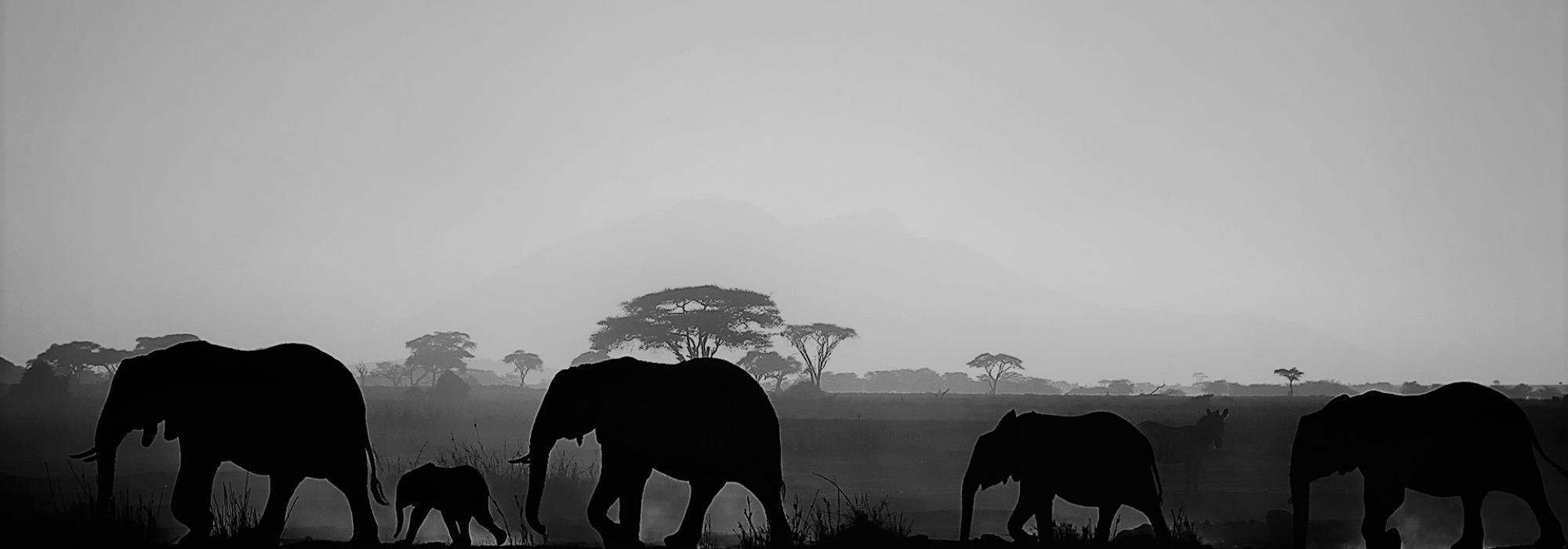7. "Mamātmā bhūtabhāvanaḥ" : Brahma-consciousness is the cause of a jīva's rise and fall. The term bhāvanaḥ can variously mean birth, existence, sustenance, or control. Brahma has embedded the seed of Ṛta (Cosmic order) and dharma in human nature. Ṛta is the law in creation. "Deeds beget appropriate rewards and a jīva has to experience them" is the cosmic law of ṛta. The practical application of ṛta in life is dharma. Dharma and adharma result in puṇya and pāpa respectively and therefore in svarga and naraka. "A jīva follows dharma or adharma to experience elevation or degradation" - is the decree of Brahma. Brahma-consciousness becomes bhūtabhāvana by virtue of this universal decree which controls the jīva's birth and life. Hence it is Brahma that is responsible for the journey of the jīva.
It might be helpful to use an allegory to clarify the combined meaning of these three statements.
- Mamātmā bhūtabhṛt
- Mamātmā na ca bhūtasthaḥ and
- Mamātmā bhūtabhāvanaḥ
Consider a traditional joint family (common fifty years ago) in India with the head of the family, his wife, their four or five children, and six or eight grandchildren making it fifteen to twenty members in the family.
- Apart from himself and his wife, the head of the family is either the father or grandfather to most of the family members and is bhūtabhṛt (as their head) to them. He guides them, educates them, establishes them in a suitable vocation, and bears responsibility for their welfare. He is bhūtabhṛt for all of them as their nourisher.
- Even so, he does not enter their personal lives much. He allows them their freedom according to their age and circumstance. He wishes for the general welfare and happiness of his daughters-in-law and grandchildren. He leaves them to their own devices thinking, "Let them live according to their discretion. They don't have to live for me. Let them lead their lives for their own well-being." He takes care of them, but does not impose his wishes upon them. Such a person - na ca bhūtasthah - if asked for their share of property by any of his children wishing to lead separate lives, justly gives to them what they deserve and asks them to lead lives wisely. He lives with his younger children as long as they want him to. When they do not need him anymore he separates from them, allowing them their independence. His disposition thus is one of detachment and thus is "na ca bhūtasthah".
- He educates his children, corrects their ways, and trains them to be prudent. The know-how of what is good and what is not that he imparts to his children will keep them in good stead. They will fail miserably if they reject his teachings. On the other hand, they will benefit from suitably applying his instruction. In this way, he is bhūtabhāvana (the giver of welfare) for his family.
This is the gist.
- The world is a family of jīvas created by Īśvara (Brahma).
- Family hassles, however, do not affect Īśvara.
- Īśvara has supplied jīvas with necessary means of sustenance.
- Īśvara demonstrates rules and guidance through the mechanisms of prakṛti to help jīvas lead a better life. This set of rules is dharma.
- He also provides them with the requisite intellect to understand and discern the good and bad of those dharmas.
- The jīva attains welfare or otherwise depending on how well it maintains dharma.
- Īśvara is aloof from the world. Nothing of the world affects him.
- It is the jīva who needs the world to refine himself and achieve purification.
- The jīva benefits by getting closer to his source, Brahma.
- Māyā clouds the jīva's understanding and keeps him away from Brahma. Māyā is that deluding power found in Prakṛti.
We have now briefly discussed the relationship between Brahma and the world, the Brahma-jīva relationship, and the relationship between the world and the jīva. This is requisite preparation for the next chapter. It is useful to understand their background as these topics appear repeatedly.
It has been stated above that the world exists in Brahma just like the clouds in the atmosphere. Bhagavān relates the same through another comparison.
yathākāśa-sthito nityaṁ vāyuḥ sarvatra-go mahān |
tathā sarvāṇi bhūtāni mat-sthānītyupadhāraya ||BG 9.6
Brahma is like the sky. The world is like the wind in it.
Good. Brahma is independent; the world is not. Who created this dependent-independent relationship? Brahma anyway is self-existent, uncreated, and unborn. But is the same thing with the world? Or, if it is created, who created it? The answer again is Brahma.
prakṛtiṁ svāmavaṣṭabhya visṛjāmi punaḥ punaḥ ||
- BG 9.8
mayādhyakṣeṇa prakṛtiḥ sūyate sacarācaram ||
- BG 9.10
Brahma assumes the aspect of Īśvara and creates the world again and again through Its power of Prakṛti. Prakṛti gives birth to this animate and inanimate world with Brahma as the adhyakṣa (the presiding entity).
In a regular assembly or gathering, the word ‘president’ denotes a position that performs a set of specific activities. Neither does the president of an assembly give a speech nor does he proffer any opinion. The president listens to others’ speeches and observes the proceedings. The position by itself ensures dignity in the assembly’s proceedings. The president is a witness who is present during an assembly, not one who does anything. The president’s presence ensures propriety in proceedings. Thus the word ‘presidency’ is apt in our discussion.
Brahma does not do anything by Itself. It is ‘president’ because it observes prakṛti’s activities. Prakṛti is but one aspect of the limitless power of Brahma. It has been earlier said that Brahma is the master of the world-family. The mistress of this family is prakṛti. Or prakṛti can be likened to the Prime Minister of a well-ruled country. All the administrative duties are discharged by the Prime Minister. It has already been mentioned that Brahma is like the Constitutional Monarch who does not have the strain of administration, which is the domain of prakṛti. A thief stole; a policeman arrested him and the judge sentenced the thief to six months of imprisonment. The thief was handcuffed. What did the king have to do here? All the activities were done as part of the rule of law. Similarly, jīvas obtain their rewards or punishment for their activities as determined by the rule of dharma. Brahma is an unattached witness. It witnesses goings on “from above”. Hence “adhi + akṣa” - adhyakṣa.
tapāmyahamahaṁ varṣaṁ nigṛṇhāmyutsṛjāmi ca |
amṛtaṁ caiva mṛtyuśca sadasaccāhamarjuna ||BG 9.19
“I heat the waters, gather them upwards into clouds and rain the waters down. I am Immortality as well as Death. I am Being as well as Non-being.”
The above śloka as well as these from the third chapter are also worth reflecting upon.
iṣṭān bhogān hi vo devā dāsyante yajñabhāvitāḥ | (3.12)
annādbhavanti bhūtāni parjanyādannasaṁbhavaḥ || (3.14)
Just as the Supreme Īśvara is the inner controller of the jīva, he is its sustainer as well. Īśvara is the one who provides all the means necessary for life and is the basis for everything.
Not just that; he is Death as well. The Kaṭhopaniṣad outlines this gory truth.
yasya brahma ca kṣatraṃ ca ubhe bhavata odanaḥ ।
mṛtyuryasyopasecanaṃ ||“For Brahma, both the wise and brave are morsels of rice. And Death is a tasty pickle.”
Who rules the world? It is prakṛti who controls the world. She is of two forms - daivī and āsurī. The ones who take refuge in the daivī form become Bhagavān’s devotees.
bhajantyananyamanaso jñātvā bhūtādimavyayam
satataṁ kīrtayanto māṁ yatantaśca dṛḍhavratāḥ |
namasyantaśca māṁ bhaktyā nityayuktā upāsate ||BG 9.14
“They are of single-minded devotion to Parameśvara, having known that Brahma is the origin and cause of all existence. They always sing of Brahma, and steadfastly worship the all-encompassing Brahma-consciousness as the One Supreme Attributeless Brahma as well as in the myriad forms of other Devatās.”
To be continued...
The present series is a modern English translation of DVG’s Kendra Sahitya Akademi Award-winning work, Bhagavad-gītā-tātparya or Jīvana-dharma-yoga. The translators wish to express their thanks to Śatāvadhāni R Ganesh for his valuable feedback and to Hari Ravikumar for his astute edits.















































